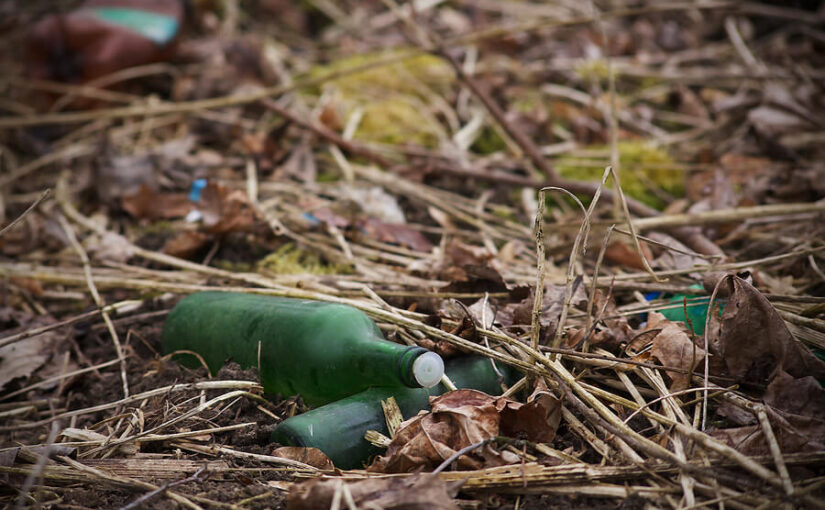Packaging waste and recycling have been high on the environmental agenda for years now. But while the focus has been on plastic and specific problems like coffee cups and cotton buds, one of the main domestic and business waste streams – glass – hardly gets a mention.
You might think that’s because glass is not problematic to the environment, but have you ever stopped to ask the question? Where does glass come from anyway, and where does it go once you throw it away?
Read on to find out more about the environmental impact of glass waste.
The problem with virgin glass
A very simplified version of how new glass is produced is this: sand is heated until it melts, and then cooled rapidly so it keeps some of its liquid properties, such as transparency.
It’s a little more complicated than that, but the main ingredients are all natural, such as limestone and soda ash. However, heating sand to its very high melting point of 1,700 Celsius takes a lot of energy, and the manufacturing process of virgin glass uses a lot of water too.
There’s some air pollution, too. Sulphur oxides are released during the melting process, and nitrogen oxides are generated if the glass is heated by burning gas. So although we tend to think of glass as a ‘clean’ product, it has its drawbacks.
The benefits of recycled glass
On the other hand, recycled glass overcomes many of these issues. Glass can be recycled infinitely with no loss of quality – in effect, melting glass to make new glass is the same as melting sand.
That means fewer natural resources are taken from the environment. In coastal areas where erosion is a concern, that can mean more sand is left on the beach where it belongs, instead of being made into bottles and jars.
Recycling glass is more efficient at every step along the production process. Every 1,000 tonnes of glass that gets recycled can lead to savings of:
- 1,000 tonnes of waste diverted from landfill
- 1,200 tonnes of raw materials saved
- 314 tonnes less of CO2 emissions
- 345,000 kWh of energy savings
It can be hard to picture what 1,000 tonnes of recycled glass would look like. Instead, think of one glass bottle. Recycling that alone can save enough energy to power a 100W lightbulb for nearly an hour, or a typical computer for 20 minutes.
Why recycle glass in business waste?
You don’t have to be a pub or restaurant to recycle glass in business waste – although obviously the benefits are multiplied if you routinely create large quantities of glass waste.
Even in an office or other workplace, throwing glass in your general waste is a mistake. Glass is relatively heavy compared with plastic and paper, and it doesn’t crush easily, so you can end up filling your bins faster and paying more landfill tax by weight.
It’s easier than you might think to start recycling glass in business waste, too. You no longer need to separate out different colours of glass – Forge Recycling can collect them all in the same 240-litre or 360-litre wheelie bin.
We take care of separating the colours, rinsing any residues and crushing the glass ready to be made into something new. It’s a 100% closed-loop process where zero glass goes to waste, with all of the benefits listed above.
Are there any good alternatives to glass?
One of the best alternatives to recycled glass is simply reusing glass in its current form. If you can rinse and refill a container, that saves 100% of the energy taken to recycle it. We already do this in our everyday lives with drinking glasses, jugs and bowls, but we could all do more to reuse bottles and jars.
Some other alternatives are getting better in terms of recycling. For example, more cardboard cartons are being made using recyclable materials, whereas in the past they may have had non-recyclable linings.
Bioplastics have potential too, both by using renewable raw materials and by being biodegradable in landfill sites. However, they sometimes use food crops, which raises concerns about the sustainability of food supplies in the future.
Ultimately, glass is currently among the best options for sustainable packaging – and this is especially true of recycled glass, which is why we should all be making sure we recycle glass in business waste and domestic waste alike.
Find out more about Forge Recycling’s glass waste collection and recycling services.
